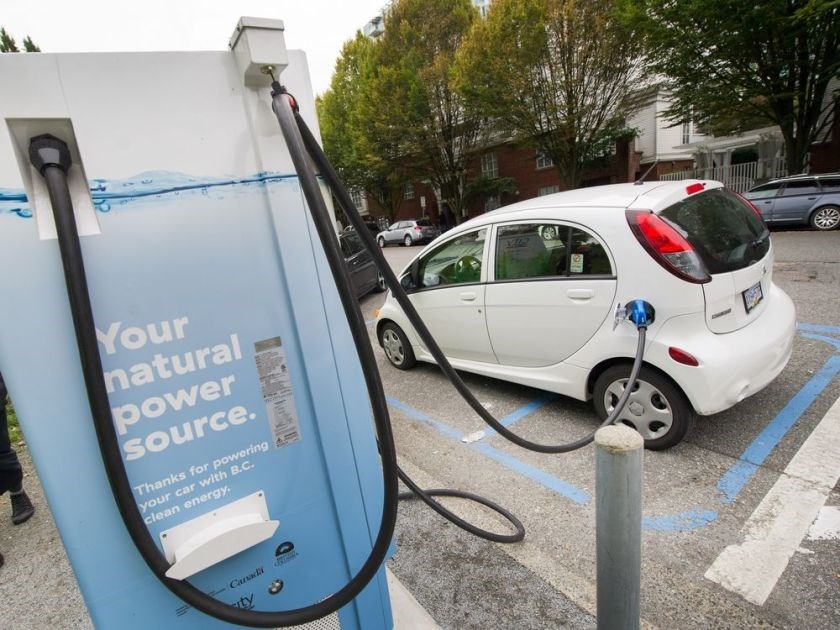High gas prices are driving British Columbians toward electric vehicles (EV) but supply can’t match the demand, a report from BC Hydro says.
While 2021 was a record year for British Columbians turning to EVs, the pickup could have been higher if more had been available, a May 13 report from the utility said.
Manufacturers have faced supply chain issues as well as lithium battery and microchip shortages over the past couple of years. That has meant less production.
And while manufacturers are still facing challenges, the report said, research points to supply chain shortages easing by 2023.
Research has found 34 per cent of British Columbians who are interested in buying a vehicle are hesitant to buy an EV because of lack of availability.
That lack of availability has, in part been COVID-19-driven, as the pandemic created global supply chain problems.
“Research from an independent automotive analyst shows EV supply chain issues will begin to ease by 2023, with supply close to fully meeting demand by 2026,” the report said.
Waiting aside, the switch to EVs is something the provincial government has been advocating as part of climate change adaptation for some years. And, BC Hydro has been along for the ride as it worked on .
Fighting over cars
Still, the situation still leaves EV dealerships with wait times of a year, depending on the type of vehicle a customer wants.
“In fact, 41 per cent of those actively shopping for an EV describe the buying process as difficult,” the report said.
And while some folks have joined the waiting lines, others have looked elsewhere, including:
- 13 per cent making inquiries to buy a friend/family/neighbours’ car;
- 15 per cent considering purchasing an EV out of province or country;
- 11 per cent settling for a colour they did not want or lack of features they did want;
- Five per cent buying a more luxurious model or spent more than they initially wanted to, and;
- One per cent fighting with another EV buyer.
With all those buyers ready, BC Hydro believes the EV market is on the cusp of significant growth.
The EV market share in sa国际传媒 is expected to grow 3.5 per cent from about 25,000 new units in 2021 to over 30,000 in 2022. In 2023, market share will grow by an estimated 6.5 per cent with 45,000 new units available.
Looking further ahead, by 2026, EVs in sa国际传媒 could make up a quarter of all EVs in sa国际传媒, with an additional 118,000 units.
So where does that leave British Columbians with an eye on an EV?
BC Hydro spokesman Kyle Donaldson has a few suggestions.
Plan and be flexible as EVs are in high demand. He said it may take time to locate a specific vehicle. Shortlist models and get on waitlists. Visit to search all the electric vehicles available in sa国际传媒 by manufacturer, type of car, price, and range.
And buy used. The province recently announced it would no longer collect provincial sales tax (PST) on used EV sales.

